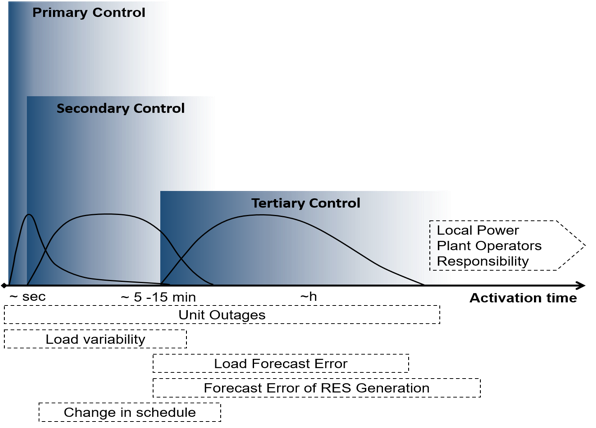Evaluating Reserves Performance for Aiding Renewable Electricity Integration
The goal of this work is to compare the costs and performance metrics of various reserve dimensioning methods and develop suggestions for optimal new methods that also account for integration of renewables.
Operating reserves are a critical element to maintain the stability and reliability of existing electricity grids. These reserves provide a range of ancillary services to compensate for uncertain conditions. The large-scale integration of renewable energy sources (RES) is an additional challenge that could impact the amount of reserves a system needs to carry in order to ensure its reliable operation. This work aims to more comprehensively assess reserve performance and system reliability.
To assess the performance of reserves and their ability to overcome the added uncertainty from RES, this work includes the following:
- Quantification of reserve requirements using three unique reserve-dimensioning methods: a deterministic method based on ENTSO-E recommendations, a probabilistic method base on the Central European approach (Switzerland and Germany), and a probabilistic approach used by the US National Renewable Energy Laboratory.
- Evaluation of various reserve performance and system adequacy metrics including: dispatch costs, expected energy not served, frequency deviation, and area control error.
- The use of an advanced dispatch model that co-optimizes the energy generation and reserve procurements over each day of the year along with a reserve deployment simulation.
More details about this research area can be found on the AFEM (Assessing Future Electricity Markets) website.
The team involved in this project include, former master student Gonca Gürses from the RWTH Achen University, and Dr. Jared Garrison and Dr. Turhan Hilmi Demiray from FEN, the Research Center for Energy Networks (Forschungsstelle Energienetze – FEN).
FEN is affiliated with the Energy Science Center (ESC) and acts as a bridge between academic research, industrial needs and social issues related to energy policy, shaping the transition to a more sustainable, reliable and cost effective future energy grid.
